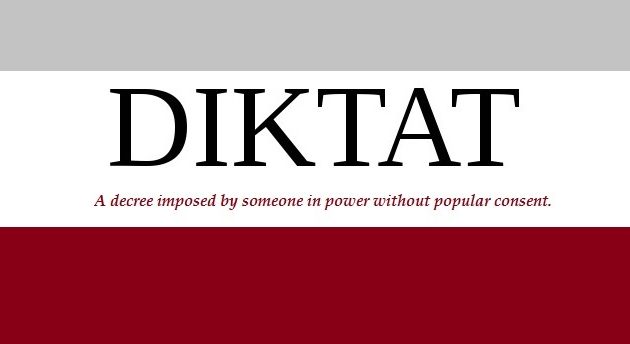Russia’s Syria diktat
In a few weeks the Syrian civil war will reach another grim milestone. In March it will be five years since that war began. Back then, in 2011, the uprising against the dictatorship of the Assad dynasty seemed as though it could herald a moment of hope. Indeed the whole region appeared to be showing the potential to throw off the yoke of the dictators and the people seemed to be showing that they were willing to take control of their own futures. How far away that moment, briefly termed the ‘Arab Spring’, now seems.
There has been little enough good news in the years that have followed. Syria has descended into an inter-sectarian war, in which nearly every power in the region and much of the wider world has had their own favourites, however briefly. And many of the groups they have supported have subsequently slipped away from their own grip. The situation is a mess and there is now no obvious way to solve it.
The newly-announced ‘pause’ deal is alas no such thing. It is a deal to which Assad and the Syrian government have not agreed. It is a deal to which, rather obviously, neither ISIS nor the al-Nusra front have agreed. And the pause also does not refer to Russian air-strikes. In a way this ‘agreement’ epitomises everything that has gone wrong with Syria from the start. Putting the country back together again is impossible because everybody wants to keep their pieces of it while demanding everybody else offer up theirs.
Starkest of all is the utterly cynical behaviour of the Russian government. After months of bombing targets which constitute the more moderate anti-Assad opposition, this week Russian Prime Minister Medvedev gave a stark warning to America, Saudi Arabia and others not to send in ground-troops to stabilise parts of Syria. To do so, he threatened, would lead to ‘permanent’ war.
And here is the tragedy of Syria. The West demonstrated no leadership from the start, and so five years in it is Russia that is dictating the terms both of war and peace and doing so for no moral or humanitarian reason but for the lowest forms of statecraft. It is the people of Syria who most deserve our pity. And it is the whole international community who most deserves their remaining contempt.

From the Director’s Desk
It’s been an interesting experience watching a US Primary unfold before my eyes this week, New Hampshire’s race having coincided with a speaking visit to Palm Beach, Florida.
As I sat glued to the wall to wall coverage of the results, two things swiftly became apparent.
As I sat glued to the wall to wall coverage of the results, two things swiftly became apparent. The first was that Americans – or at least the good people of New Hampshire – were angry enough at the state of politics/the economy/America’s position in the world (delete as applicable) to vote for ‘outsider’ candidates. This was unsurprising, given polls had suggested this for some time, and New Hampshire has a history of plumping for non-Establishment candidates.
The second factor was more interesting, for it appears that in making the choice for change, New Hampshire’s voters seemed happy to entrust their future into the hands of two elderly, white men. Now I have nothing against elderly, white men, seeing as I will be one myself one day, but Bernie Sanders and Donald Trump are unusual candidates for the mantles thrust upon them.
Sanders talks a good game, but has been a Washington insider for many a year as a Representative and now Senator. He will be 75 at the time of the election. Trump wil be a spritelier 70, but is a bona fide member not only of the 1% as opposed to the 99%, but the 0.1% of the 1% who are supposed to have done even better than their already wealthy peers. It appears Americans have discounted the reality of their situations in order to embrace the possibility that one of these candidates could yet lead them to nirvana.
It seems dificult to believe – given the monumental blunders it has made in terms of foreign policy and the damage it has caused to US standing in the world – that we might one day come to regard the Obama years as golden compared to what came next. But watching Sanders’ and Trump’s victory speeches led me to conclude we might. Sanders’ effort can only be described as turgid. Trump’s as rambling. Neither were good advertisements for the state of US democracy.
Of course, in the US Presidential election cycle, every candidate is only one result away from either achieveing the ‘Big Mo’ – otherwise known as momentum – or from being eliminated from the contest. Already, the field has contracted. Let us hope that when it narrows to two, that the victorious ones are those who can ensure America’s – and indeed the world’s – future is better than its immediate past.
Dr Alan Mendoza is Executive Director of The Henry Jackson Society
Follow Alan on Twitter: @AlanMendoza



Leave a Reply
Want to join the discussion?Feel free to contribute!